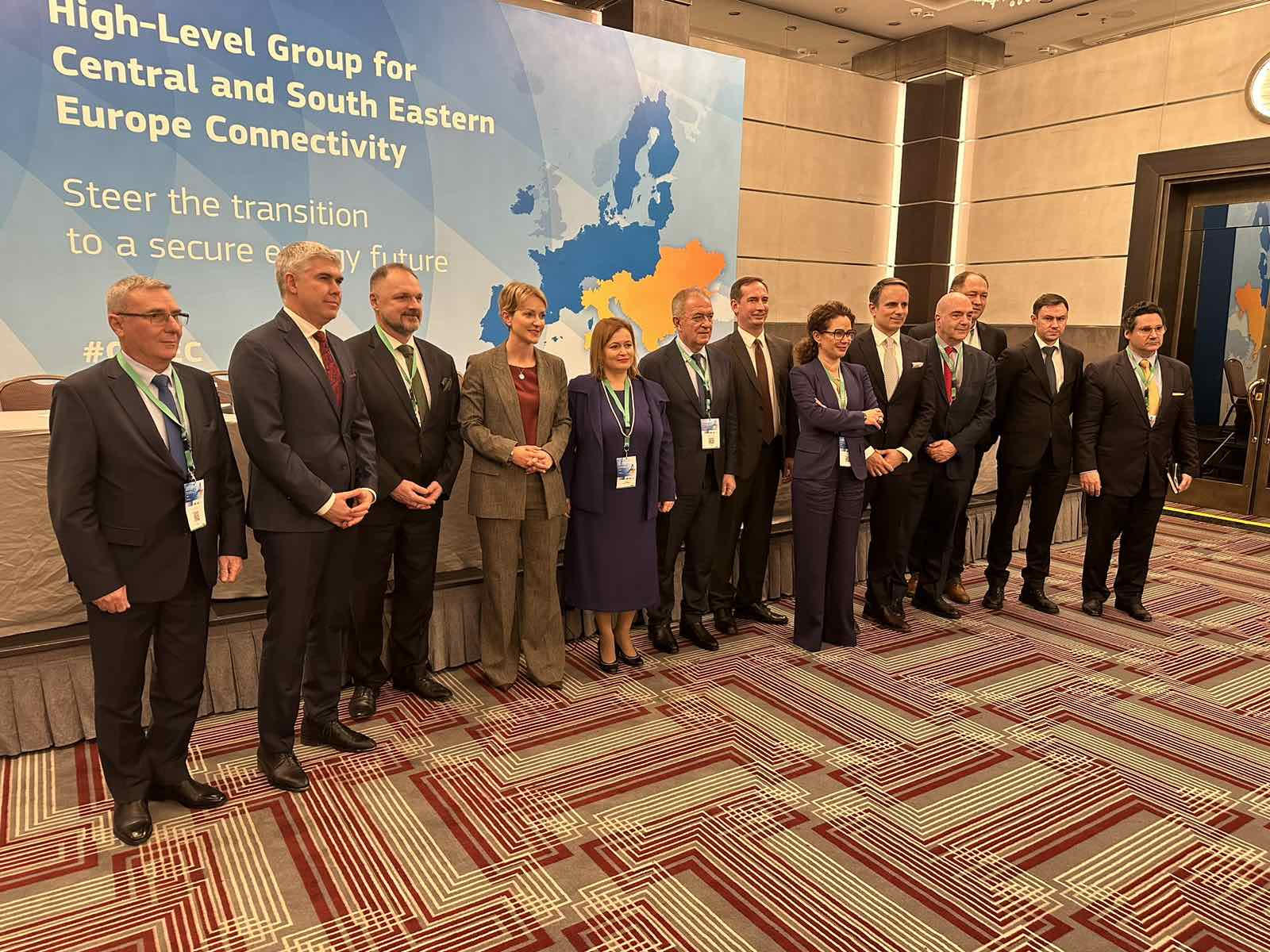
Plans to expand the capacity of the interconnector IGB to 5 billion cubic meters per year will be of great importance to be able to carry 10 billion cubic meters per year of LNG from terminals in Greece and Caspian gas through the Southern Gas Corridor, reaching Moldova, Ukraine , Hungary and Slovakia.
Plans to expand the capacity of the IGB interconnector to 5 billion cubic meters per year will be of great importance to be able to transfer 10 billion cubic meters per year of LNG from the terminals in Greece and Caspian gas through the Southern Gas Corridor, reaching Moldova, Ukraine, Hungary and Slovakia.
The operators of gas transmission systems from the Vertical Gas Corridor (Greece, Bulgaria, Romania, Hungary) welcomed Moldova and Ukraine as new members of the initiative. The parties signed a Memorandum of Understanding in Athens, Greece, in the framework of a ministerial meeting of the Central and South-Eastern European Gas Interconnection Group (СЕЅЕС).
The Memorandum of Understanding consolidates the intensive cooperation developed by the operators of gas transmission systems for natural gas and liquefied natural gas from Greece (DESFA and Gastrade), Bulgaria (ICGB, Bulgartransgaz), Romania (Transgaz), Hungary (FGSZ) and Slovakia (EUStream), in order to respond in a coordinated manner to the need to strengthen energy security and further diversify sources of supply.
The expansion of coordination within the Vertical Gas Corridor with operators from Moldova (Vestmoldtransgaz) and Ukraine (GTSOU) is an initiative of the ICGB and aims to implement closer cooperation to exploit the existing natural gas infrastructure in the region. This could enable the transportation of 10 billion cubic meters per year liquefied natural gas from the terminals in Greece and Caspian gas, volumes from the Southern Gas Corridor through third countries, which further reinforces the key regional role of the IGB interconnector.
„Currently, the IGB gas pipeline operates with a capacity of 3 billion cubic meters per year, but given the dynamics in the region and the market demand, we are already working on expanding this capacity to reach 5 billion cubic meters per year. This will be of huge importance to allow the import of larger quantities of liquefied natural gas from the south through the IGB and through the Trans-Balkan Gas Pipeline also to reach the markets of Moldova and Ukraine, Hungary and Slovakia“, said ICGB Executive Directors Teodora Georgieva and George Satlas. According to them, with this strategic step, the Vertical Gas Corridor becomes a more competitive corridor for European consumers, strengthening Europe's energy independence and diversification of supply.
As next steps, all transmission system operators agreed to conduct simultaneously in July 2024 - one year ahead of schedule - a binding market test of capacity allocation at the relevant interconnection points. Based on expressed market interest, capacity expansion projects will be advanced to meet demand along the Vertical Corridor route.
The IGB project (Greece-Bulgaria Intersystem Gas Connection) is implemented by the mixed investment company „ICGB“ AD, registered in Bulgaria in 2011 with shareholders „BEH“ JSC (50%) and „IGI Poseidon“ (50%). The joint shareholder „IGI Poseidon“ is a company registered in Greece, with shareholders the Greek company „DEPA International Projects“ S.A. (50%) and the Italian energy group „Edison“ S.p.A (50%).
In accordance with its charter, „ICGB“ JSC is the owner of the IGB gas pipeline, financing its implementation, distributing its transmission capacity and receiving revenues from the transmission of natural gas.
The IGB gas pipeline is connected to the Greek national gas transmission system (DESFA S.A.) and the Trans-Adriatic gas pipeline (TAP AG) in the area of Komotini (Greece), and to the Bulgarian gas transmission system (Bulgartransgaz JSC) in the area of Stara Zagora. The total length of the gas pipeline is 182 km, the diameter of the pipe - 32'' - and a design capacity of up to 3 billion m3/year in the direction of Greece-Bulgaria. Depending on the market interest in using a larger capacity and the possibilities of the neighboring gas transmission systems, the capacity is designed to increase to 5 billion m3/year. with additional construction of a compressor station. (For more information visit https://www.icgb.eu ).
Source: Diana Zaikova, 0885/074 422, 0885/614 131; Rositsa Donkova, 0888/343 661.